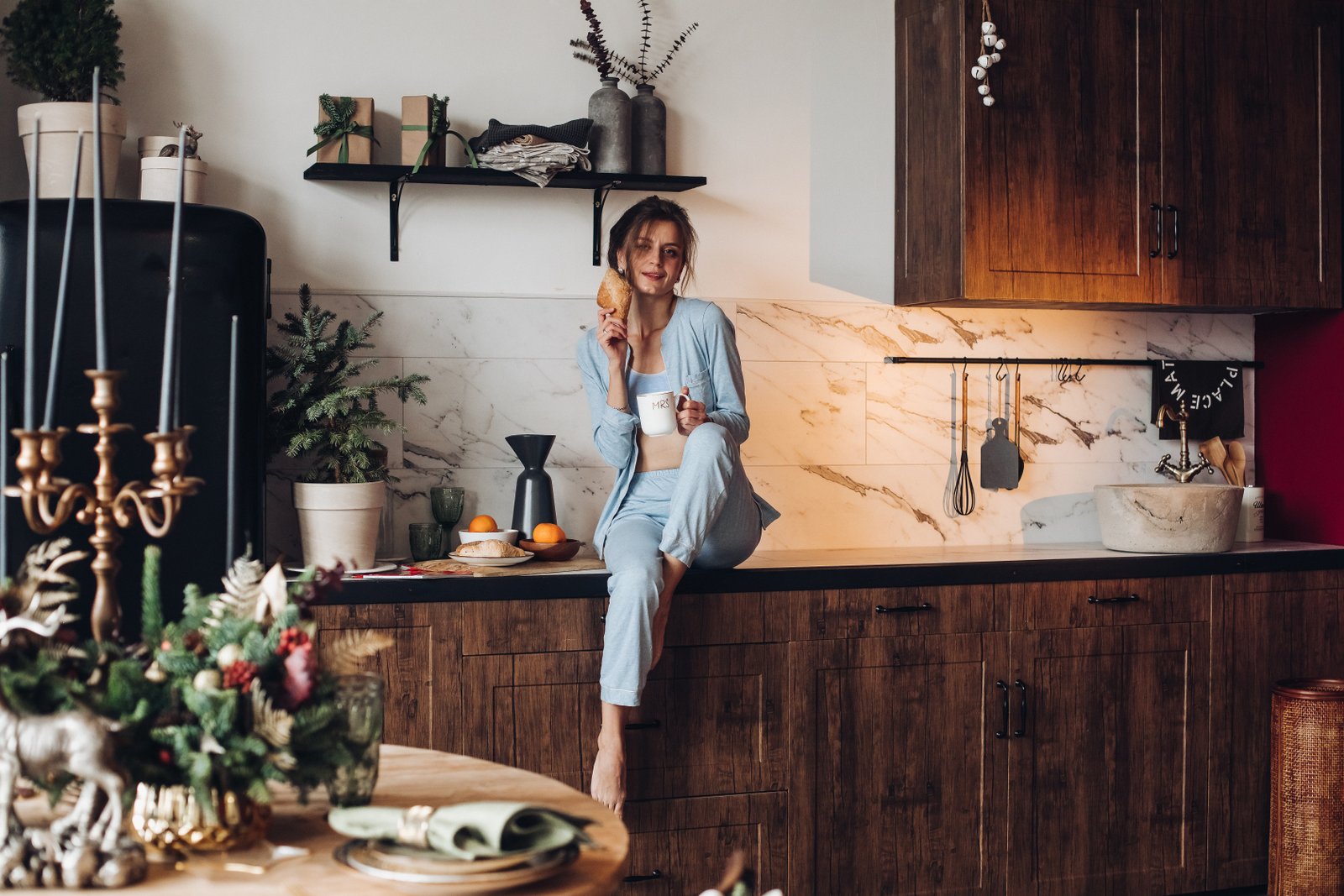
This Wabi-Sabi Inspired Kitchen Design Brings Comfort and Elegance
Wabi-Sabi, the Japanese philosophy of embracing imperfection and transience, has found its way into modern kitchen design. This aesthetic approach values simplicity, natural materials, and an organic sense of balance. A Wabi-Sabi-inspired kitchen is not about glossy perfection but rather about authenticity, warmth, and lived-in beauty.
The Essence of Wabi-Sabi in Kitchen Design
A Wabi-Sabi kitchen focuses on natural materials, earthy tones, and handcrafted elements. Unlike modern kitchens filled with high-gloss cabinets and sleek surfaces, this design celebrates raw textures, asymmetry, and the beauty of age.
1. Natural Materials for an Authentic Feel
Wabi-Sabi design thrives on organic materials such as wood, stone, clay, and linen. Choosing unfinished wooden cabinets, textured stone countertops, and ceramic dishware enhances the tactile beauty of your kitchen. Opting for reclaimed wood or vintage furniture adds a sense of history and character.
2. A Muted, Earthy Color Palette
Colors play a significant role in a Wabi-Sabi kitchen. Instead of bright and bold hues, this aesthetic favors muted earthy tones like soft browns, greys, off-whites, and deep greens. These shades create a calming and timeless atmosphere, making your kitchen a tranquil retreat.
3. Handcrafted and Imperfect Elements
One of the key aspects of Wabi-Sabi is the appreciation of imperfections. Incorporating handmade pottery, uneven tiles, and rustic wooden stools brings warmth and uniqueness to the space. Cracks, dents, and patina on metal or wooden surfaces are not flaws; they are marks of a well-loved and functional kitchen.
4. Minimalism with a Purpose
Unlike traditional minimalism, Wabi-Sabi is not about stark emptiness but about mindful curation. Declutter the space while keeping only meaningful and functional items. Open shelves displaying carefully chosen kitchenware, herbs, and vintage pieces contribute to the aesthetic while keeping things practical.
5. Soft, Natural Lighting
Lighting in a Wabi-Sabi kitchen should mimic the softness of nature. Instead of harsh overhead lights, opt for paper lanterns, warm LED bulbs, or large windows that let in natural daylight. Soft shadows and warm lighting enhance the cozy ambiance.
6. Sustainable and Thoughtful Choices
Wabi-Sabi promotes sustainability through thoughtful consumption and repurposing. Investing in long-lasting, high-quality materials rather than mass-produced trends ensures a timeless appeal. Consider upcycling old kitchen furniture or using locally sourced materials for an eco-friendly approach.
7. Bringing Nature Indoors
To create a connection with nature, introduce potted plants, fresh herbs, or dried flowers into your kitchen. This not only enhances the aesthetic but also improves air quality and adds a refreshing touch.
Conclusion
A Wabi-Sabi-inspired kitchen is more than just a design choice—it is a way of life. It encourages appreciation of the simple, the imperfect, and the natural, creating a space that feels warm, inviting, and deeply personal. By incorporating raw materials, earthy colors, and handcrafted elements, you can transform your kitchen into a haven of tranquility and timeless beauty.

Leave a comment